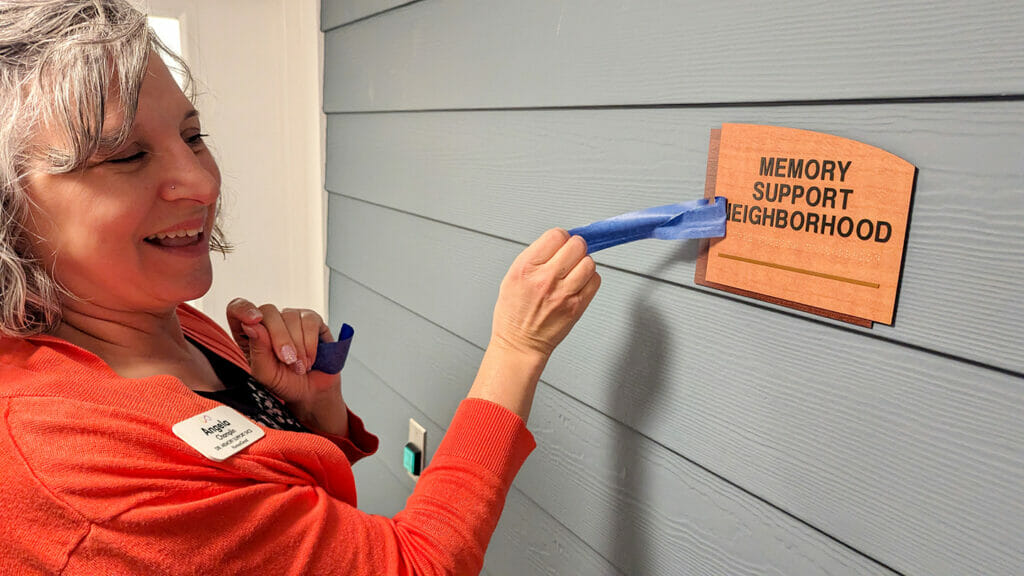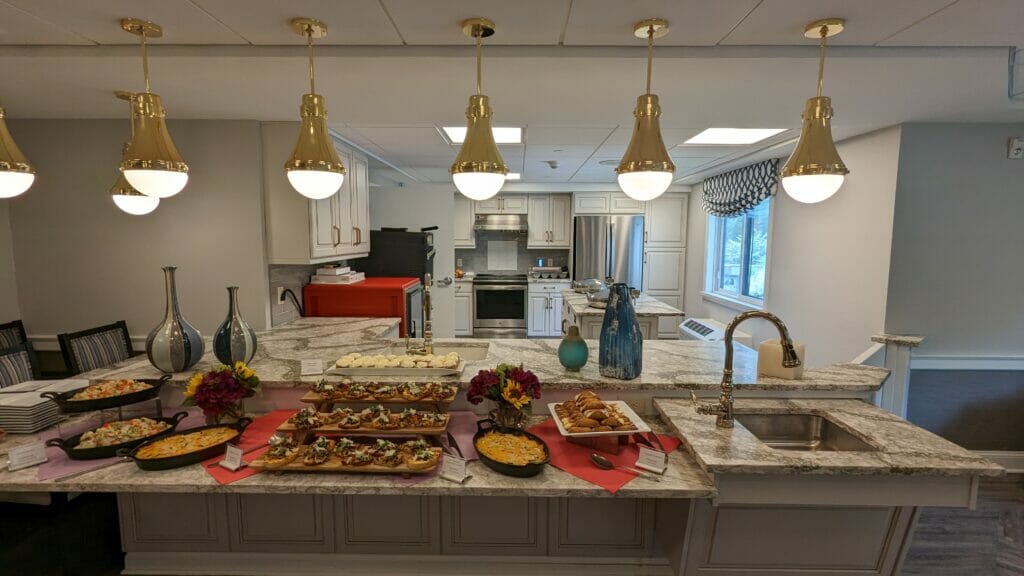
A neighborhood approach to supporting residents with dementia provides a “human-centered” environment that preserves dignity and individuality, according to one senior living provider.
HumanGood recently opened a new residential memory support neighborhood at The Mansion at Rosemont, a Pennsylvania life plan community. The neighborhood features wide open common spaces, including two outdoor terraces, a dining room, a full kitchen and sitting areas that are meant to reflect a home-like environment.
“Our goal is not just to go in and provide all the care, but to support each individual only to the amount they need to maintain as much independence as possible,” Memory Support Services Director Angela Champlin told McKnight’s Senior Living of HumanGood’s “immerse” memory support program. “It’s a more dignified approach.”
Champlin said that providing the best life for each resident means immersing oneself in their world, which is how HumanGood approached the design of The Mansion at Rosemont. The provider even hosted a small “housewarming party” rather than a large opening, which could have been disruptive. The party allowed residents to invite their families into their new home.
“We purposefully designed the neighborhood like someone’s comfortable home,” Champlin said. “Therefore, you will never see a rolling dining or medication cart in the hallway.”

To that end, laundry chutes dispense with laundry carts rolling through the community, back entrances that lead into the kitchen detour meal carts from the middle of the residence, and medications are secured in locked cabinets in each resident’s apartment to avoid the use of medication carts.
Based on the principles of the proprietary immerse program, the neighborhood was designed to provide support only where needed, “to protect autonomy, build relationships, offer purposeful programs to engage and promote self-esteem and deliver high-quality service and care via specially trained team members.”
As part of the immerse program, Champlin said, HumanGood is offering support and education for family members to provide consistency when they visit a resident. Champlin also is rolling out new training for all employees, to give an overview of dementia in the brain, the preservation of dignity, human-centric care and other topics.
“We’re looking at, down the road, to involve family members in the training,” Champlin said, adding that residents in other levels of care and service also will be educated. “To immerse ourselves, everyone has to be on the same page.”
The community also offers welcome kits to new families that contain the book “Chicken Soup for the Soul: Living with Alzheimer’s & Other Dementias,” a soup mug, two packets of chicken noodle soup and crackers. Champlin said the kit encourages families to embrace their relationships with their loved ones and care for themselves while HumanGood takes over care of their loved ones living with dementia.




